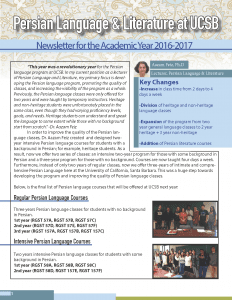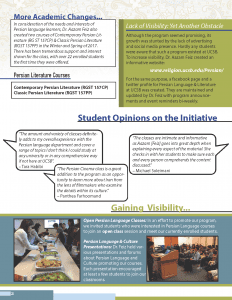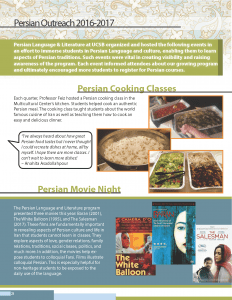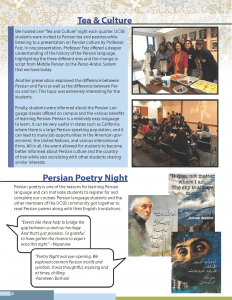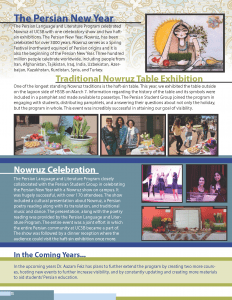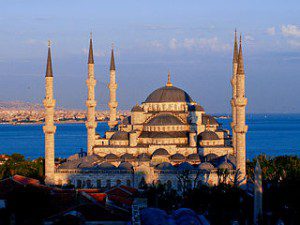 Students in the Islamic Studies concentration work on a wide range of historical periods from the advent of Islam to the present in a variety of cultural regions, especially the Middle East, South Asia, and North America. The study of Islam in its different formations and settings and of Muslims in their historical, social, and cultural diversity is encouraged by the faculty, together with inquiry into Islam’s interactions with other religions and non-Muslim peoples. Students are expected to become familiar with various approaches used in the field, including philological textual studies, social and political history, comparative research, gender studies, and ethnographic fieldwork. The doctoral program in Islamic studies at UCSB expects students to develop expertise in the following areas:
Students in the Islamic Studies concentration work on a wide range of historical periods from the advent of Islam to the present in a variety of cultural regions, especially the Middle East, South Asia, and North America. The study of Islam in its different formations and settings and of Muslims in their historical, social, and cultural diversity is encouraged by the faculty, together with inquiry into Islam’s interactions with other religions and non-Muslim peoples. Students are expected to become familiar with various approaches used in the field, including philological textual studies, social and political history, comparative research, gender studies, and ethnographic fieldwork. The doctoral program in Islamic studies at UCSB expects students to develop expertise in the following areas:
- The foundational texts of Islam (Qur’an, hadith) and the major genres of Islamic literature (such as, tafsir, fiqh, kalam, falsafa, Sufi text, balagha).
- Islam’s formations in historical, social, political, and cultural contexts, including modern ones.
- The theoretical and methodological tools needed to conduct original, independent research in an area of specialty within the fields of Islamic studies.
The specific area of specialization of each student will be a natural result of the evolution of the student’s research interests in the program. However, a statement of research interests must be included in the student’s application essay, indicating the applicant’s engagement with current literature in the study of Islam.
View a printable Islamic Studies brochure here.
CORE FACULTY:
- Janet Afary: Modern Iran; religion, politics, and culture in modern Middle East; and gender and sexuality in the Middle East
- Ahmad A. Ahmad: Islamic intellectual history, specifi cally Islamic legal history and theory, the relationship between theory and practice in Islamic law, adjudication, the laws of war, apostasy, and privacy
- Juan E. Campo: the comparative study of the cultural formations of Islam in the Middle East and South Asia, Muslim & non-Muslim relations, sacred space and pilgrimage, political Islam in the contexts of modernity, and religion and the culinary cultures of the Middle East, politics of contemporary Middle East
- Racha El Omari: History of Islamic philosophical/dialectical theology (kalām) with focus on its early period.
- Kathleen Moore: comparative study of Muslim minority communities in western democracies (e.g., Britain and the United States); law and society; legal pluralism; legal issues facing Muslims in non-Muslim societies (including shari’a as well as constitutional, civil and criminal law); gender studies; and policy studies related to globalization, race and religion (concentrating on immigration, citizenship, anti-discrimination and counter-terrorism). Adam Sabra (History): the Middle East, especially Egypt, in the medieval and early modern periods, with particular interested in the social and cultural history of Cairo.
- Affiliated Faculty: See faculty listings and links at Center for Middle East Studies.











